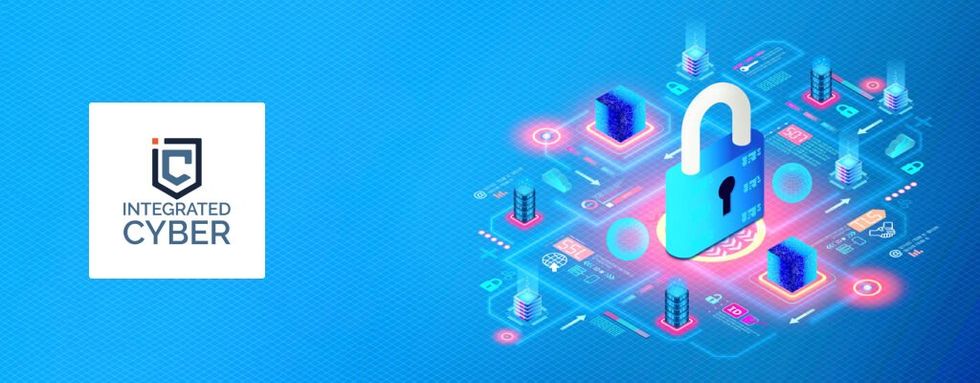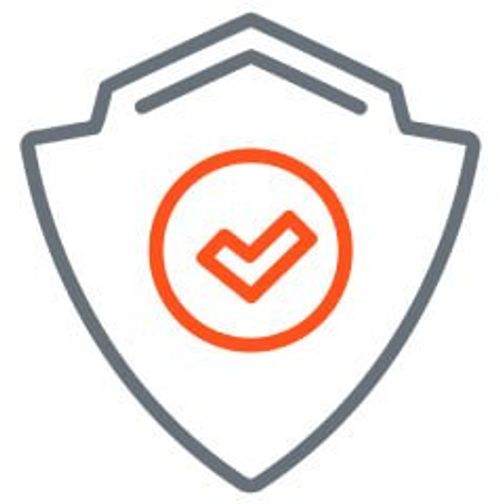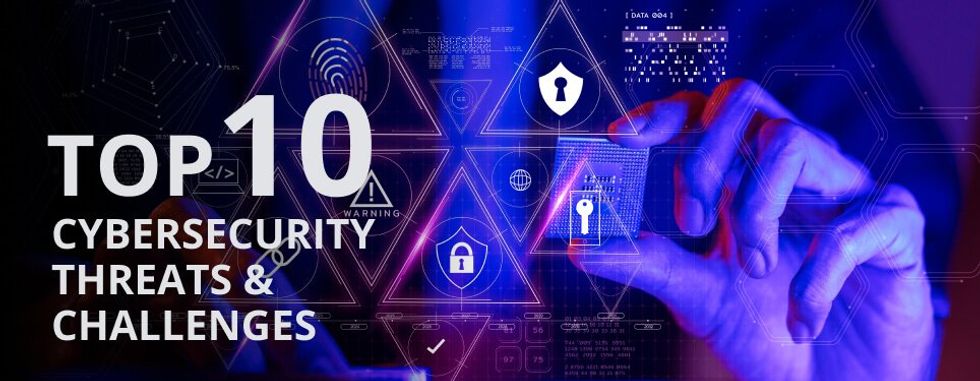With 1 billion malicious programs installed and more than half a million new pieces of malware produced worldwide each day, cybersecurity threat actors are growing progressively better and causing greater damage to businesses than ever before.
While large corporations typically have the resources to deal with cybersecurity threats, the cost of a single ransomware attack to small and medium-sized businesses (SMBs) could be devastating – making them perfect targets for cybercriminals. Research firm Cybersecurity Ventures predicts the cost of cybercrimes will reach $10.5 trillion annually by 2025.
According to Gartner Group and Mckinsey research, SMBs, those with less than 500 employees, remain a market category with global cybersecurity sales estimated at more than $40 billion. It has been growing at more than 8 percent per annum to date, and is expected to exceed $50 billion during the next five years.
But with threats often come opportunities. SMBs represent a highly underserved segment in the global cybersecurity market, and one cybersecurity company is tapping into this multi-billion-dollar opportunity.
A
newly listed cyber security stock on the Canadian Stock Exchange, Integrated Cyber Solutions (CSE:ICS) offers a comprehensive suite of tools designed to protect small and medium businesses from threat actors.

Security Made Simple with Integrated Cyber
Integrated Cyber has assembled a team that brings together strategic and tactical experience with the goal of making security more actionable and understandable for
everyone. The company’s IC360 platform is designed to cross-correlate information across multiple siloed systems and solutions. This big-picture view allows companies to identify potential threats they may otherwise have missed.
IC360 will also leverage artificial intelligence and machine learning to better identify trends and patterns that might indicate a breach.
More importantly, Integrated Cyber focuses on the
human side of security. It pays just as much attention to processes and education as it does on security tooling. In doing so, it helps businesses that lack the resources or personnel not only protect themselves from threat actors, but also gain a better understanding of their security posture in the process.
Integrated Cyber
: The Value Proposition
Focused primarily on the United States and Canada, Integrated Cyber’s mission is simple — to cut through the landscape of fragmented solutions, confusing jargon and overwhelming noise, and make cybersecurity understandable, actionable
and accessible to the underserved SMB market.
Why Invest in
Integrated Cyber (CSE: ICS)?
Intelligent, Purpose-Built
Product Portfolio
The security market is a complicated and noisy place, marked by heavy investment into complex technology stacks. Integrated Cyber cuts through the noise with a fully owned portfolio that integrates and correlates data from multiple systems to provide a single, understandable source of truth.
Integrated Cyber’s portfolio is focused on three vital security pillars, tied together with artificial intelligence.
 |
Vulnerability Management Vulnerability management begins with the proactive identification and remediation of potential cyber risks and threats. As a trusted advisor, Integrated Cyber provides teams with the expertise and manpower they need to improve their security posture. Services include:
|
 |
Cyber Training & Awareness Roughly 80 to 90 percent of cybersecurity issues occur because an employee does something they aren’t supposed to do. Integrated Cyber addresses this through a modern, prevention-focused approach to cyber education that transforms employees into the best defense instead. Services include:
|
 |
Managed Detection & Response According to Gartner, roughly 50 percent of organizations are expected to leverage managed detection and response by 2025 — and with good reason. Managed Detection & Response (MDR) augments organizations with the expertise, manpower and functionality they lack, providing cybersecurity resources through a managed services framework. Integrated Cyber offers the following:
|
Fight AI Threats with AI
Artificial intelligence has fundamentally changed the nature of cybersecurity. It allows organizations to provide personalized security training, gain insights from massive threat intelligence datasets and detect and respond to threats automatically. Unfortunately, most businesses lack the expertise to incorporate these tools.
And they’re just as effective at cracking security as they are at improving it. The unpleasant reality is that cybersecurity has always been a perpetual arms race between security professionals and adversaries. Artificial intelligence and machine learning simply represent the latest battleground.
Unfortunately, the threat actors are winning. The current cybersecurity industry consists of
hundreds of point solutions addressing different threats, approaches and environments. A security stack built from these solutions is unsustainable even for a business that does possess the necessary resources to maintain it.
We need to do better — and we can.
 |
Artificial Intelligence at the Core of IC360 Integrated Cyber is incorporating AI technology across its applications to keep customers safer than ever before, creating an intelligent platform that arms SMBs with the same level of protection as large corporations. Its IC360 platform consolidates its entire product portfolio into a powerful command center characterized by the following:
|
Strong Financials, Focused Roadmap, Expert Leadership
There’s no such thing as a completely surefire investment — but cybersecurity is likely the closest anyone will ever get. Integrated Cyber is well-positioned to redefine cybersecurity for SMBs, while leveraging technology to future-proof both its portfolio and the funds of its investors.

Integrated Cyber
Addresses the Top Ten Cybersecurity Threats Facing Businesses
1
Ransomware
Global ransomware attacks have reached epidemic proportions, with cybercriminals employing increasingly sophisticated methods to infiltrate and encrypt sensitive systems and data. By 2031, ransomware is expected to cost its victims as much as $265 billion, according to research firm Cybersecurity Ventures.
2
Social Engineering
Based on findings from IT security firm Trend Micro, over 75 percent of cyberattacks start with an email and 85 percent of all data breaches involve human interaction. It has always been far easier to manipulate a human being than it is to target a software vulnerability. This will continue to remain the case for the foreseeable future, particularly given the sharp increase in cryptocurrency-related attacks.
3
Third-Party Exposure
As the world continues to shift towards interconnected digital ecosystems, supply chain attacks will become increasingly prevalent. The perfect example of this in practice, the result of compromised credentials and an outdated VPN, was the Colonial Pipeline breach in May 2021. The Colonial Pipeline is one of the most vital pipelines in the US, and was a victim of a ransomware attack that shut down the pipeline’s digital systems, and ultimately affected the supply chain on the East Coast.
4
Insufficient Cyber Hygiene
A little mindfulness goes a long way in protecting a business’s systems and data. Unfortunately, cyber hygiene is one area where many businesses fail entirely. Over half of IT professionals don’t mandate two-factor authentication and most organizations rely on human memory for password management.
5
Cloud Vulnerabilities
Cloud software has become increasingly essential of late. Unfortunately, this has served to amplify its security risks even further. The past five years have seen a 150-percent increase in cloud vulnerabilities according to a 2021 IBM report, while a Data Breach Investigations Report stated over 90 percent of data breaches in 2021 were the result of compromised web apps.
6
The Internet of Things
IoT devices are now ubiquitous in both our personal and professional lives. Unfortunately, they’re also a cybersecurity nightmare. Even though the market has been around for years, the majority of smart devices are still hampered by outdated software, poor encryption and an overall lack of built-in security.
7
Configuration Mistakes
It’s not always a phishing email or targeted attack that causes a breach. Often, cybersecurity incidents are the result of human error. According to a survey by Ponemon Institute, more than half of IT experts don’t even know if the cyber security tools they’ve installed
actually work.
8
Improper Mobile Device Management
Mobile devices are a long-standing bugbear for security professionals due to a constant stream of device and application vulnerabilities. To make matters worse, threat actors have recently begun targeting mobile device management systems, potentially giving them control over a company’s entire device fleet.
9
Poor Data Management
Without a clear idea of where its data is and how that data is used, it’s almost impossible to identify a breach in a timely fashion. Fortunately, this is one risk category where businesses seem to be on top of things. Experts have predicted that this year will see businesses place increased emphasis on storing only the data they need.
10
Inadequate Cyber Forensics
What a business does after being attacked is just as important as how it protects itself. Yet many businesses don’t bother with proper post-breach forensics, leaving them open to a repeat attack. In 2021, a survey by Cybereason found 80 percent of victims who paid to remove ransomware experienced a second attack shortly afterwards.

The Case for
Human Factor
If there is one thing cyber security breaches in recent history has taught businesses is that
human error could be the weakest link in any cybersecurity plan.
Many companies focus extensively on the technical aspects of cybersecurity, creating a digital fortress to guard their systems and assets.
That’s all
well and good until someone leaves the door open.
Everyone, from interns to experienced professionals, makes mistakes. Those mistakes are exactly what threat actors are counting on to gain access. The
number one source of cyber risk isn’t advanced, persistent threat groups or sophisticated malware yet. It’s human beings making human mistakes.
The most important thing is to understand what’s happening not just from a technical perspective, but from a human perspective.
As highly experienced security professionals, the Integrated Cyber team recognizes the risk of human error and has addressed this vulnerability in its integrated suite of solutions for SMBs.

Led by a team of former Fortune 100 chief information security officers, Integrated Cyber Solutions has a well-defined growth strategy and a comprehensive product portfolio that delivers security services to a perpetually
underserved and high-potential SMB market.
“Threat actors have access to powerful tools like ChatGPT, which can generate polymorphic malware code that can avoid detection, or even better, write a convincing email. What a fun time to be a security professional,” said Craig Porter, director advisory for Gartner’s security research and advisory team, in Gartner’s 2023-2024 Cybersecurity Outlook report.
It’s no surprise the
global cybersecurity market is booming. Fortune Business Insights estimates it will reach $376 billion by 2029 at a compounded annual growth rate of roughly 13.4 percent. In spite of this, many organizations remain perpetually unprepared to defend against a cyberattack – and this despite having a cybersecurity plan in place.
A
Gartner survey in the U.S, U.K. and Germany found that 41 percent of organizations had experienced an AI privacy breach or security incident. For SMBs, navigating the complexities of a constantly evolving cybersecurity threat landscape is even more challenging.
The choices for cybersecurity solutions and services are plenty. To a layperson, the technical jargon is nearly impossible to understand. These solutions are not only challenging to implement and integrate, but also to operate, especially on a 24×7 basis. Often, these solutions do not address all vulnerabilities and most SMBs simply lack the resources to even keep pace with the fast-moving threats of cyber criminals.
Integrated Cyber addresses these cybersecurity challenges by bringing together best-in-class capabilities from multiple third-party cybersecurity providers, allowing it to continuously evolve as it delivers managed services to SMBs.
Third-party Partners Include: KnowBe4 (NASDAQ: KNBE), Proofpoint (NASDAQ: PFPT), Bitdefender, Rapid7 (NASDAQ: RPD), Tenable Holdings (NASDAQ:TENB), and Fortinet (NASDAQ: FTNT).



Future-proof Investment in Cybersecurity; more demand than ever before
Some 3.5 million cybersecurity jobs are expected to remain unfilled through 2025, based on research from Cybersecurity Ventures. There simply aren’t enough experienced professionals to keep up with demand. As a result, full-time cybersecurity professionals now operate at a premium that’s unaffordable for most companies, particularly SMBs. It has also resulted in a sharp upturn in managed services.
This has created a cybersecurity conundrum for SMBs: on the one hand, it’s only through third-party expertise that they can hope to deal with cyberattacks and sophisticated threats; on the other hand, getting such third-party expertise can come at an exponential price.
Most enterprise cybersecurity vendors focus on large corporations that can afford their price tag, essentially making SMBs the forgotten middle child of the cybersecurity market. They’re too small to catch the attention of enterprise cybersecurity vendors, yet their security needs are too comprehensive and complex for consumer-grade protection.
This creates a significant opportunity for an SMB-focused cybersecurity service provider to grab hold of this underserved market.
And if market performance is any indication, this creates a strong investment opportunity.
Cyber Security Valuations are Growing
Cybersecurtity ETF’s are outperforming the market:
- WisdomTree Cybersecurity Fund (NASDAQ: WCBR) rose 41.34 percent
- ProShares Ultra Nasdaq Cybersecurity ETF (NASDAQ: UCYB) rose 36.91 percent
- Global X Cybersecurity ETF (NASDAQ:BUG) rose 23.42 percent
- First Trust NASDAQ Cybersecurity ETF (NASDAQ: CIBR) rose 22.74 percent
- ETFMG Prime Cyber Security ETFMG Prime Cyber Security Fund ( NYSEARCA: HACK) rose 20.95 percent
Other cyber security vendors have also done well in the stock market, including: Palo Alto Network (Nasdaq:PANW), which rose 82.84 percent; Crowdstrike Holdings (NASDAQ:CRWD) rose 66.82 percent; Zscaler( NASDAQ) at +49.65 percent; Rapid7 ( NASDAQ:RPD) +41.65 percent; and Fortinet (NASDAQ: FTNT) +34.11 percent.
This is a large part of what gives Integrated Cyber its
incredible growth potential. SMBs need cybersecurity tools just as much as any organization, yet have very few options with regards to where they can find them.
The expertise Integrated Cyber’s management team brings to the table comes from years of working in the security sector. They know what works and what doesn’t.
And that makes
Integrated Cyber an incredibly attractive investment.
Credit: Source link




